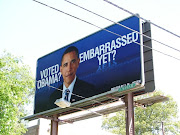I found this article to be Ironic, as it seems to be that our American media resembles the same traits as Taiwan, by not reporting the truth. In an editorial written by Chen Mao-hsiung. He speaks about the impartial media of Taiwan.
Taiwan’s media must learn to be impartial
By Chen Mao-hsiung 陳茂雄
Friday, Jun 12, 2009, Page 8
‘The public has no confidence in media objectivity.’
Media outlets covered President Ma Ying-jeou’s (馬英九) recent Central American trip very differently. Some offered excessive praise, while others offered only criticism. This is nothing new.
Before the Chinese Nationalist Party (KMT) lost office in 2000, media outlets would choose sides, but their agendas were not so obvious. After the Democratic Progressive Party (DPP) gained power, opposing opinions became increasingly evident. Some media described the government as always being right and the opposition as trying to put a curse on Taiwan, while others said the exact opposite.
After the KMT regained power, the media continued to behave in the same way, though now most of the media say the KMT is always right and the DPP is always wrong. Only a few outlets avoid the two extremes.
Most media outlets depict political parties as either perfect or evil beyond redemption. From a business standpoint, these outlets can attract readers or viewers who are either purely “blue” or purely “green,” allowing them to make a profit. From a professional perspective, however, they wield no influence.
While media outlets may hold political stances, they should strive to be impartial by balancing criticism and praise of the parties they support or oppose.
The presumption of innocence means no one can be convicted without proof. There may be cases where no law has been broken but unreasonable actions have been taken, such as when a citizen feels wronged by a civil servant but has no recourse to legal action. Luckily, the supervisory powers of the Control Yuan make up for the inadequacies of the judiciary.
The use of the Control Yuan’s power does not require adequate evidence of a crime, but relies on voting to pass impeachments and rectifications. Even if civil servants do not break the law, they could commit errors and can be brought before the Control Yuan.
However, the Control Yuan’s powers extend only to civil servants and elected administrative leaders, not legislators or county and city councilors. This means elected officials can do all sorts of ludicrous things as long as they do not break the law or there is no evidence they have broken the law. This has created many gray areas in society.
In most democracies, the media can shed light on such gray areas. The media are called the Fourth Estate because they make up for government inadequacies. The Fourth Estate puts pressure on elected officials who must amend their actions as a result. Unfortunately, Taiwan’s media have lost this function.
The public has no confidence in media objectivity. Because the majority of Taiwan’s media outlets have a specific political agenda and help certain politicians by attacking their opponents, they have lost their credibility. The media can no longer put pressure on elected officials who act inappropriately.
The media are also disseminators of knowledge, but once again, Taiwan’s media have failed to perform this role well. Some talk show commentators are known for playing fast and loose with the facts.
Most media outlets have failed in their role as a Fourth Estate watchdog. Their reporting is full of errors and often politically biased. Taiwan’s media still have a long way to go.

Custom Search
News
Friday, June 12, 2009
Subscribe to:
Post Comments (Atom)










No comments:
Post a Comment